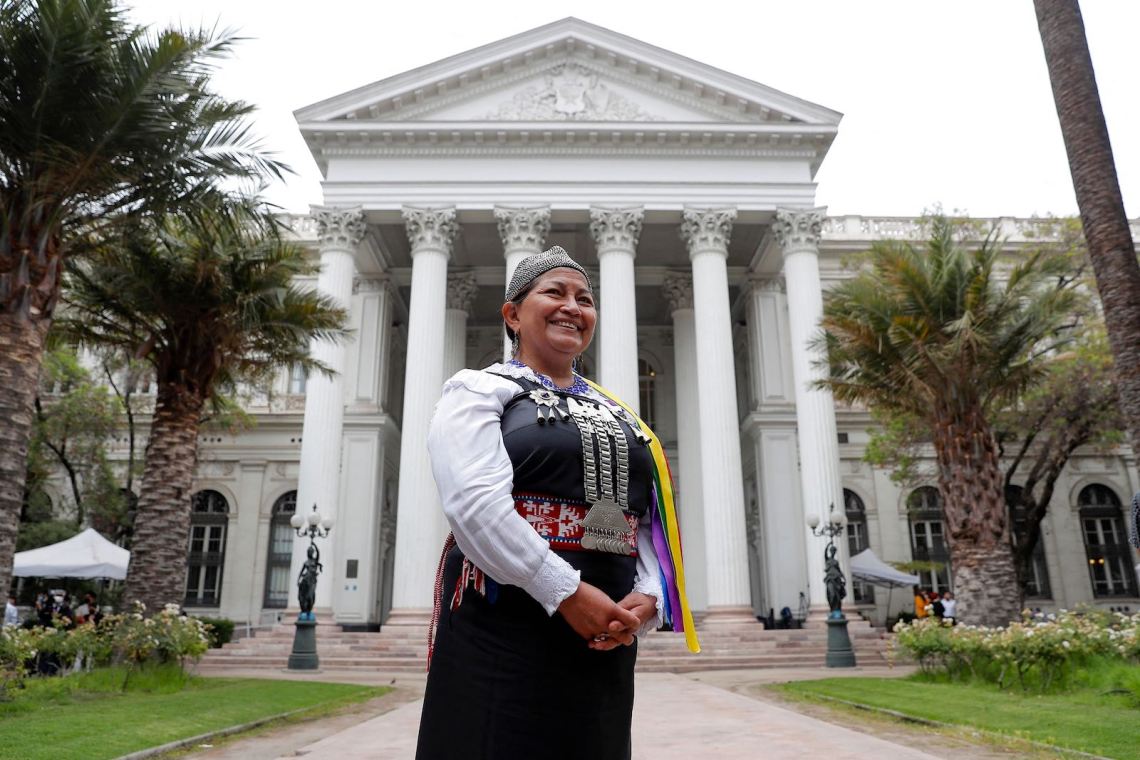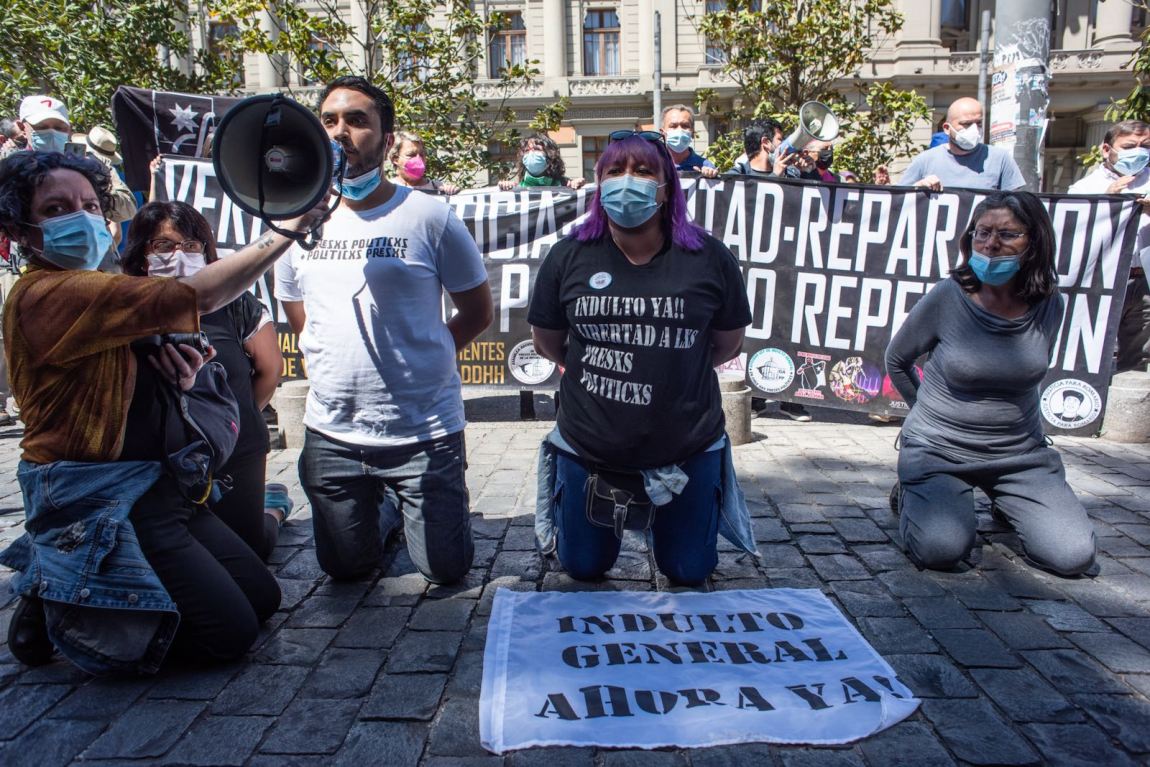Santiago—Like so many countries around the world, Chile, my country of origin, is facing a series of intersecting crises. What is encouraging is the democratic, creative, and responsible way it has found to deal with this situation: a Convención Constitucional (constitutional convention) that has been tasked with creating a new Magna Carta to replace the military dictator Augusto Pinochet’s constitution, which, since its fraudulent approval in 1980, has thwarted indispensable reforms. The convention was born as a response to a widespread revolt in October 2019, during which millions of enraged citizens demanded a drastic change in the way their nation is governed and, indeed, in its very self-conception.
Many of the issues being debated by the members of the convention are specific to Chile yet would seem far too familiar to readers in the United States and elsewhere: How to reduce wealth inequality, respond to an enormous influx of undocumented migrants, reform a violent police force, protect freedom of expression in an increasingly surveilled society, and contend with climate change without disrupting vital economic growth. And how to build a new national identity based on confronting the amnesia that has allowed the atrocities of the past, particularly against people of color and indigenous nations, to be buried and forgotten.
If this experiment in national redefinition is successful, it could serve as an inspiring model for countries around the world. But if voters were to reject these reforms, in a referendum due before the end of September, it would further erode Chileans’ confidence in democracy as a solution to the ills of a country that, like so many nations today, could succumb to the temptations of authoritarianism.
The contours of that new constitution are not yet clear, but some sense of where the process is heading can be gleaned from the composition of the convention’s 155 members. These delegates, chosen by election last May, hail from the farthest reaches of the country, with a significant presence of Chile’s neglected indigenous communities. With this breadth of representation, gender parity, and an average age of forty-five, the assembly members look far more like the sprawling and variegated population of Chile itself than the elite that has ruled this land for more than two centuries since independence ever did. Perhaps most significantly, only thirty-seven delegates come from conservative parties, meaning that they will not be able to veto the sweeping changes that a majority of the convention favors and the country itself cries out for.
Most public attention, until now, has centered on the attempts to rethink the institutional and political changes that Chile requires if it is to be governed differently. How to rein in a presidential regime that gives too much control to one person, facilitating autocracy, corruption, and abuses? And the Senate: Should it be abolished, or at least have its sway markedly reduced? Or is such a deliberative body necessary to guarantee that less populated but essential regions of the country retain representation? As for the judiciary, how to insulate it from pressure and yet also make sure it does not curtail changes that most Chileans are demanding? What sort of autonomous status and judicial independence should the many indigenous communities—or should they now be called “nations”—enjoy? How to return their ancestral lands and rights to them without damaging the interests of so many non-indigenous Chileans who now own or work on those lands?
In its brief to reimagine Chile’s fundamental laws, the convention has a crucial ally in President-elect Gabriel Boric, a charismatic thirty-six-year-old former student firebrand. Like many members of the convention, he defines himself as a feminist and an ecological activist, as well as someone deeply respectful of Chile’s native languages and traditions. And like the progressive wing of the convention, he believes that Chileans cannot benefit from adequate health care, education, housing, pension plans, and security unless the country repudiates the neoliberal economic policies it is still adhering to and builds instead a society based on solidarity in place of profit and greed.
The citizenry is the third factor in this process of creating a new foundation for the nation. They elected Boric in December with the highest number of votes in the country’s history, besting his rival—an ultra-right-wing politician who professed admiration for both General Pinochet and Donald Trump—by more than 11 percent. Elections, however, are not the only way for Chileans to express their hopes for the country’s future; the convention has given people a unique and original way to voice their preferences in a direct-democratic process.
Large contingents of Chileans—almost a million citizens—sent legislative initiatives to the convention, seventy-eight of which had backing from more than 15,000 signatories, the threshold of eligibility for consideration by the delegates. These ideas range across a broad political and ideological spectrum: some defend private property and the armed forces, others speak of giving rights to features of the natural world, including animals and glaciers, and establishing Chile as a multinational, multilingual republic. Many repeat demands voiced by the street protests of the past few years: to nationalize mineral and water resources now in private hands, to legalize cannabis, to stop the brutality the police have inflicted on the young and the poor, and to institute a national health system for all and guaranteed pensions for the senior population.
Advertisement
Despite the great success that the convention’s formation represents, and the enthusiastic democratic engagement it has engendered, the road ahead will be far from easy.
The convention has been hampered by fractiousness and disunity. A boisterous group of radical delegates has insisted on a series of maximalist proposals—such as replacing the presidency, the Congress, and the judiciary with a vaguely defined national assembly—as though Chile today existed in a state akin to that of revolutionary Russia in 1917. If the delegates do not reach a consensus on the most fundamental reforms, they will give ammunition to those who will urge voters to reject the new constitution in the fall plebiscite.
The convention has also done a poor job so far of communicating the considerable progress it has made as it whittles down more than a thousand proposals for different items in the new Magna Carta. This is a problem that has been exacerbated by a concerted campaign of hostility from right-wing bloggers and social media. (Imagine if the drafters of the US Constitution in Philadelphia in 1787 had had to do their work of deliberation in the face of incessant vitriol and disinformation posted on Facebook and Twitter.)
As for Boric, he has skillfully incorporated into his cabinet some social-democratic partners whom he attacked as too moderate in the past. But he faces a Congress in which the opposition commands enough seats to deny him most of the reforms he has promised to enact, measures for which the grassroots movements that nourished his candidacy will not cease to agitate.
Ultimately, though, the fate of both the new constitution and the incoming president will depend on the Chilean people. Over the last month or so of my stay here, I have spoken with many of my pandemic-fatigued countrymen and -women. Most of my conversations transpired during the long hours they were waiting in line—for medical attention in dilapidated health clinics or for a bus that never came, to pay bills at an understaffed bank, to fix a problem with their phone or Internet services, or to report narco activity in their neighborhood to a demoralized police force.
This is daily life for a vast majority of Chileans today: waiting and then waiting some more. I sensed an enormous well of frustration, even a seething subterranean anger, beneath the baseline mood of patience.
At one point, I met an impoverished elderly woman at a clinic. There she was, waiting for a nurse to care for her—her ankles bandaged, her hands arthritic, obviously undernourished. She had been told to arrive at 8 AM. Three hours had gone by, and nobody had tended to her. I asked how could she be so patient.
“I need to be,” she answered, with great dignity. Indeed, dignity is the word one hears on everyone’s lips—for it is what they most desire for themselves: to be treated as fully human beings. “I need to be patient,” she repeated. “But my patience is not infinite.”




